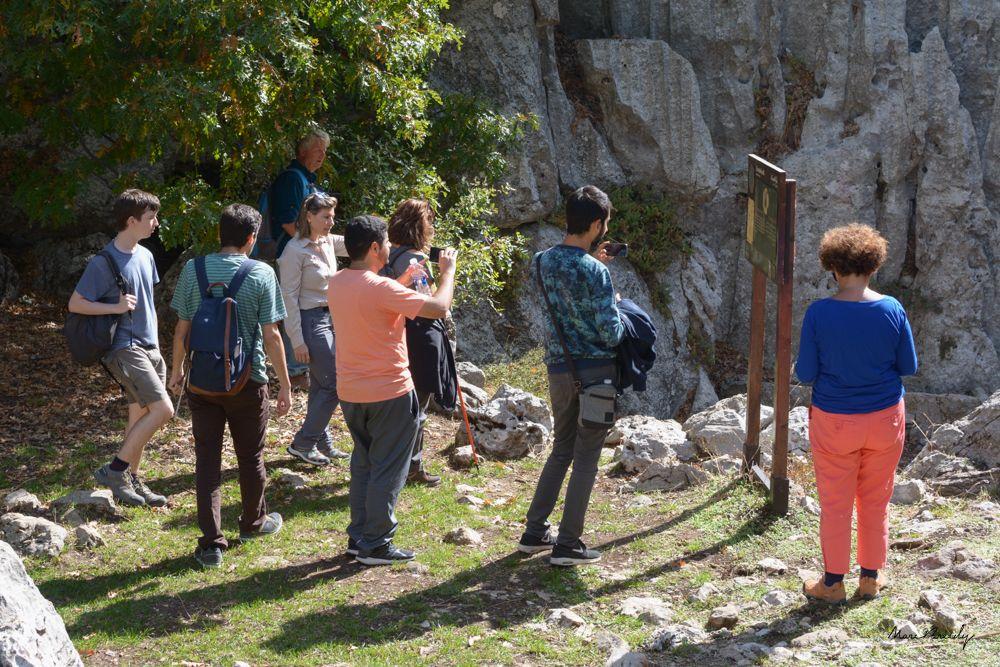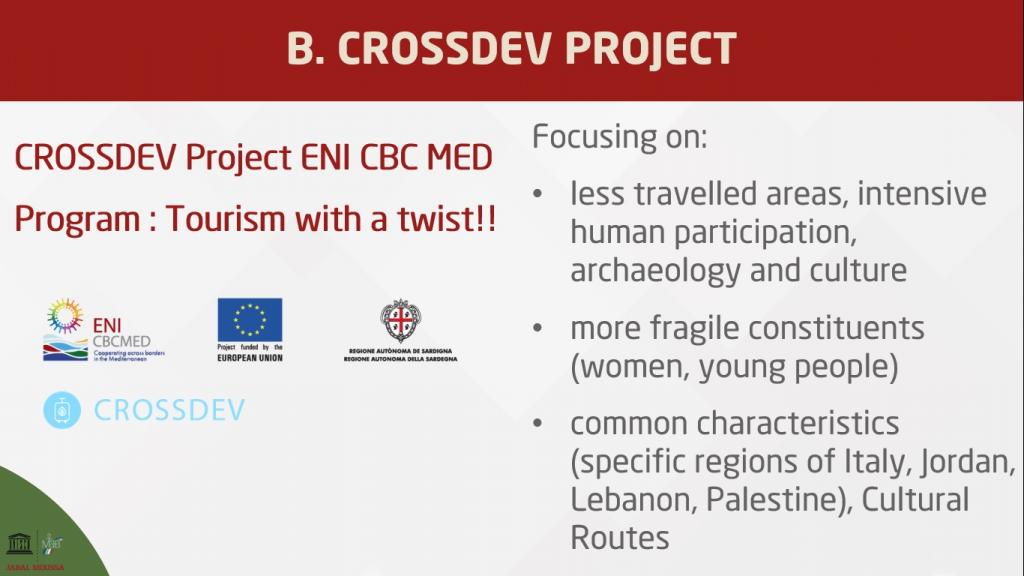CROSSDEV - Re-connecting tourism with the biosphere: a Mediterranean perspective

The participation of our project in the international debate around sustainable tourism in the Mediterranean and beyond keeps going, with members of our partnership getting invited to events about such an important issue.
Last May, the Biosphere Reserve of Jabal Moussa – CROSSDEV's partner in Lebanon – took part in the online workshop Re-connecting Tourism with the Biosphere: a Mediterranean perspective.
Organised by UNIMED in the framework of the project Sustainable Tourism (co-funded by the InterregMED Programme), the workshop brought together four speakers and 40+ participants coming from the Northern and Southern shores of the Mediterranean.
The Mediterranean region, one of the top tourist destinations in the world, is facing common challenges. An enhanced dialogue on best practices, designed and tested on both shores, can be beneficial for promoting a comprehensive approach and developing common solutions.
Pierre Doumet, co-founder and President of the Association for the Protection of Jabal Moussa, explained the value of the Reserve of Jabal Moussa (Lebanon) for the ecosystem and the local community.
There is a noteworthy difference between protected area and protecting area. It is an ongoing process. In the case of Biosphere Reserves you protect live creatures, trees, animals, the people living in the reserve and the visitors. It is not a monument where you can put a fence around. Protecting area means having an embracing approach.
Doumet also mentioned the importance of the UNESCO Man and Biosphere Programme and the work Jabal Moussa carries on, also participating in the ENI CBC MED project CROSSDEV which focuses on less-known tourist destinations in four Mediterranean regions, focusing mainly on women and young people. The Phoenician Cultural Route was also mentioned, being – together with IterVitis – one of the two Cultural Itineraries of the Council of Europe that inspire the design and implementation of the CROSSDEV project.

A final element to the discussion was added by UNIMED Director, Marcello Scalisi, who stressed the importance of the universities' role in promoting sustainability: “Universities should work together on contributing to sustainability. Tourism is a key element in the Mediterranean Region and we should work jointly to support tourism, especially after the recent crisis, and look at it defending a different perspective.” In fact, CROSSDEV has recently also promoted a cross-border agreement among Mediterranean universities, addressing this relevant issue.
READ MORE
Keep in touch with CROSSDEV: follow us on Twitter and Instagram!







